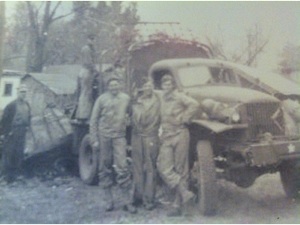In July 1944, the U.S. Employment Bureau announced that 29 German prisoners from Camp Lakeview were to work in the cooper shop of the Holland Heinz factory rolling barrels. The workers would stay through the pickle season unless other workers could be found, which would be a difficult task because almost all the men and even some women were at war.
John D. White was the assistant manager and claimed that he had no problems with the POWs, and Edward Schierbeek was able to speak some German, so he was able to help organize the POWs into different jobs.
The POWs worked six days a week at the plant and arrived in either the back of a truck or in a drab, olive Army bus.
Most of the prisoners spoke little English, but were able to communicate somewhat because of the similarities between Dutch and German languages. Surprisingly, there were not many guards, according to Marvin Vork. He also said not many of the POWs would even want to escape because “they had it too good.”
Prisoners were needed to roll and stack the barrels filled with cucumbers, water, and dillweed, which were the ingredients that were combined to make pickles. POWs also helped in the pickle and fruit harvests to gather the supplies.
While the prisoners gave Heinz labor, Heinz actually helped the prisoners, too. For example, back at the camp, prisoners had been peeling potatoes by hand. Once this was learned, the Heinz plant gave them one of their onion peelers to use at the camp to peel the potatoes.
The prisoners were not paid in money but with coupons that could be redeemed for certain items. These workers were housed at Camp Lakeview, about 20 miles south of Holland, along with the other prisoners. This made for a long journey to and from work.
Courtesy of Holland Happenings, Heroes, Hot Shots and Heinz Holland: Century of History by Randall P. Vande Water















